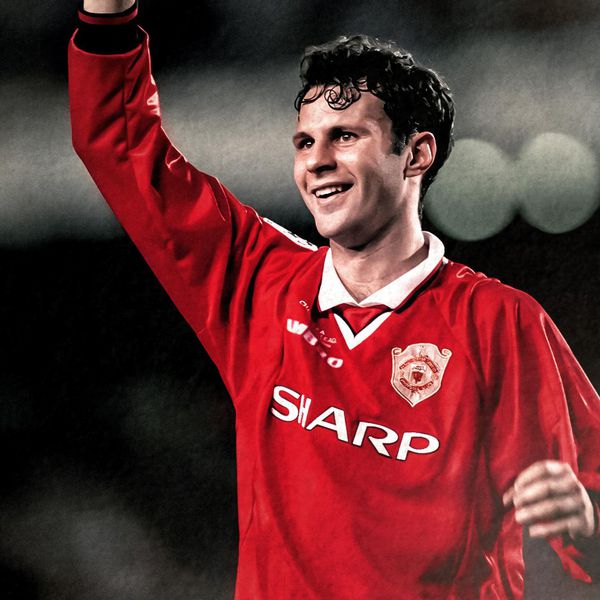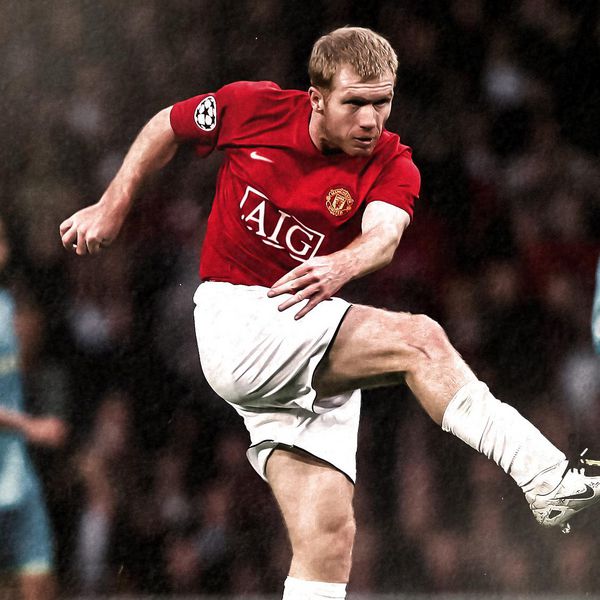Bobby
Charlton
- Appearances758
- Total goals249



Nobody embodied the values of Manchester United better than Sir Bobby Charlton. Having survived the trauma of the Munich Air Disaster when aged just 20, he played as if every game was for his fallen colleagues, recovering from his injuries to reach the pinnacle for both club and country. In a 17-year playing career with the Reds, he played 758 games and scored 249 goals - both of which were longstanding records until, respectively, Ryan Giggs in 2008 and Wayne Rooney in 2017 surpassed his feats.
Highly coveted by clubs across the country, the young Charlton, nephew of the great Newcastle United striker Jackie Milburn, joined Matt Busby's Manchester United as a schoolboy in 1953 and turned professional with the club in October 1954. After winning the FA Youth Cup in 1954, 1955 and 1956, his first-team debut came on 6 October 1956, against Charlton Athletic at Old Trafford, and the youngster made an immediate impact. He scored twice in the Reds' 4-2 league victory, despite carrying an injury. “Mr Busby asked me if I was okay,” recalled Sir Bobby. “I actually had a sprained ankle, but I wasn’t going to admit to it and I crossed my fingers and said ‘yes’.” Despite his dramatic bow, Charlton didn’t command a regular place until the latter stages of the 1956/57 season, notching 10 goals as Busby's 'Babes' won the league title - the fifth in the club's history. Competition for a first-team spot was intense, but a hat-trick against Bolton Wanderers during the next campaign certainly helped his cause - and Busby found it harder and harder to leave out the powerful young forward. In February 1958, Charlton scored twice in United’s 3-3 draw against Red Star Belgrade as the Babes sealed a place in the semi-finals of the European Cup. Disaster struck on their return, when the aeroplane taking the squad home crashed in Munich after refuelling. Twenty-three people, including eight of his team-mates, perished and Charlton was among those injured. However, his wounds were relatively minor and he was back in action within a month, eventually helping the Reds to reach the FA Cup final. United lost 2-0 to Bolton Wanderers at Wembley, but Charlton and co returned in 1963 to win the same trophy by beating Leicester City. The England international proved to be an integral component of United's rebuilding process after Munich, plying his trade across the field while the rest of the side was constructed. A permanent switch to a deep-lying forward role brought the best from him, and he was vital as Busby's men won league titles in 1965 and 1967. Shortly before the 1966 World Cup, Charlton was named Football Writers’ Association Player of the Year and European Footballer of the Year in quick succession. He went on to play a starring role as Alf Ramsey’s side won the tournament, scoring twice in the semi-final win over Portugal. Charlton earned 106 caps in total – three as captain - and his tally of 49 goals stood as an England record from May 1970 until September 2015 when Wayne Rooney broke it with his 50th strike. Although winning the World Cup is seen as the pinnacle of achievement in football, Charlton’s finest hour at club level came in May 1968 when he captained United to European Cup glory at Wembley. He scored twice in the 4-1 final win over Benfica but famously missed the post-match celebrations, instead conducting a solitary remembrance of the friends he had lost in the Munich tragedy 10 years earlier. The skipper continued to entertain United fans as part of the famed Best-Law-Charlton triumvirate before he retired in 1973. He then spent two years as manager and player-manager at Preston North End before resigning in August 1975. Bobby briefly played for Waterford in the Republic of Ireland in 1976 before accepting a boardroom position at Wigan Athletic, where he took over as caretaker-manager during season 1982/83. In June 1984, Charlton became a director of Manchester United. Ten years later, he was knighted, having previously been awarded the OBE and CBE. In 2016, Old Trafford's South Stand was renamed the Sir Bobby Charlton Stand. A respected ambassador for the club, English football and the beautiful game across the world, Sir Bobby Charlton passed away on 21 October 2023. The deeply saddening news was announced just a few hours before his beloved Manchester United played a Premier League match against Sheffield United at Bramall Lane. The fixture went ahead, just as the great man himself would have wanted.
Forward
England
11 Oct 1937
1 Jun 1953
6 Oct 1956
v Charlton (H) League
1 May 1973
FILM | Watch our classic documentary about Sir Matt Busby's dream and triumph of 1968...
✍️ On New Year's Day in 1956, Bobby Charlton signed for United. His first of 758 Reds appearances came later that year. image
“Next to The Queen, Sir Bobby was the most famous British person in the world,” says John Shiels of his former boss...
Explore the Reds' glorious FA Youth Cup history, from Duncan Edwards in 1952 to Kobbie Mainoo.
On the day he was born, read why the great man was respected throughout the world.
United and Tottenham Hotspur have only met in one previous match for a major trophy.
UPDATED COUNTDOWN: Where does Kobbie Mainoo's finish v Man City rank in our top 20 goals at Wembley? Find out...
Match Rewind | Watch one of United's greatest nights: the 1968 European Cup final in full...
Sir Bobby Charlton is remembered as an incredible player and an inspirational person by his former team-mates...
Brian Kidd and Alex Stepney have been remembering the late, great Sir Bobby Charlton, one year after his passing.
Remembering Sir Bobby clip | What is the United and England legend's lasting legacy? Our panel have their say...
Remembering Sir Bobby clip | This conversation between three of our 1968 European Cup winners is so, so special...
Remembering Sir Bobby clip | John Shiels explains how the Soccer Schools project helped over 1million children...
Watch this rare footage of our first European Cup match at Old Trafford: a 2-2 draw with Real Madrid on 25 April 1957...
The former Academy guru (and son of Wilf) has United in his blood, and tells some incredible stories.


